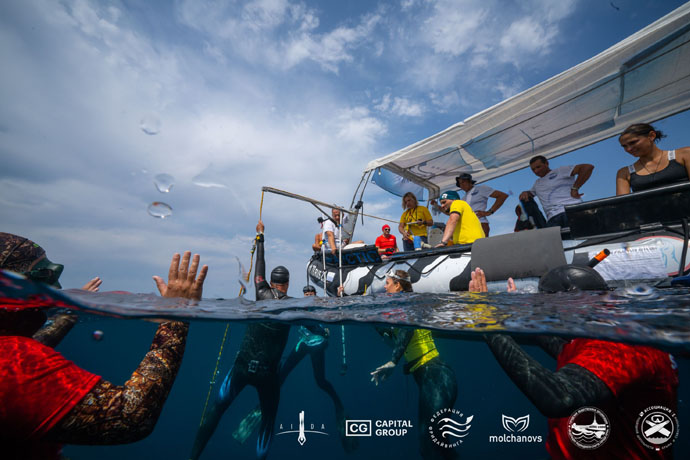Top 10 Freediving Benefits: Dive into Mental Wellness
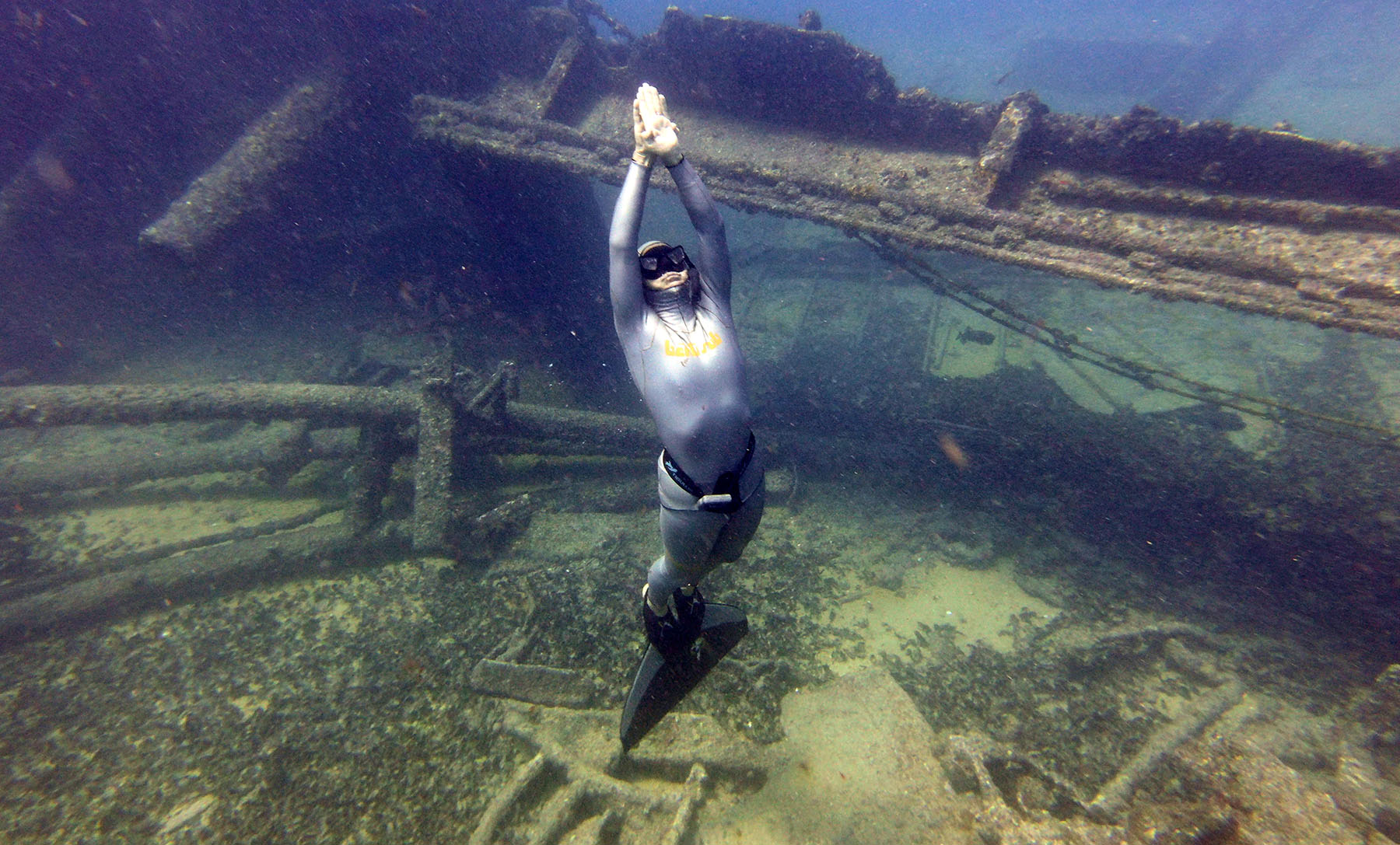
Freediving, the art of diving underwater without the aid of breathing apparatus, has been making waves in recent years, and for good reason. As more people seek respite from the chaos of modern life, freediving has emerged as a captivating activity that not only offers a deep connection with the underwater world but also provides a host of mental benefits.
In a world filled with stress and anxiety, the allure of freediving lies in its ability to offer a sense of tranquility and mental clarity. This blog post explores the top 10 freediving benefits, with a special focus on the profound impact it can have on your mental well-being.
1. Stress Relief
Understanding Stress in Modern Life
Modern life is marked by a relentless pace, where we often find ourselves juggling multiple responsibilities and dealing with constant demands. The prevalence of stress in today's fast-paced world is undeniable. Stress affects not only our mental well-being but also takes a toll on our physical health.
Research indicates that stress levels have been on the rise in recent years, with millions of people reporting feeling overwhelmed and anxious. The modern lifestyle, characterized by long work hours, digital connectivity, and societal pressures, has contributed to this escalating problem.
Addressing stress has become more critical than ever, and many are turning to unconventional methods like freediving to find relief.
Freediving as a Natural Stress Reliever
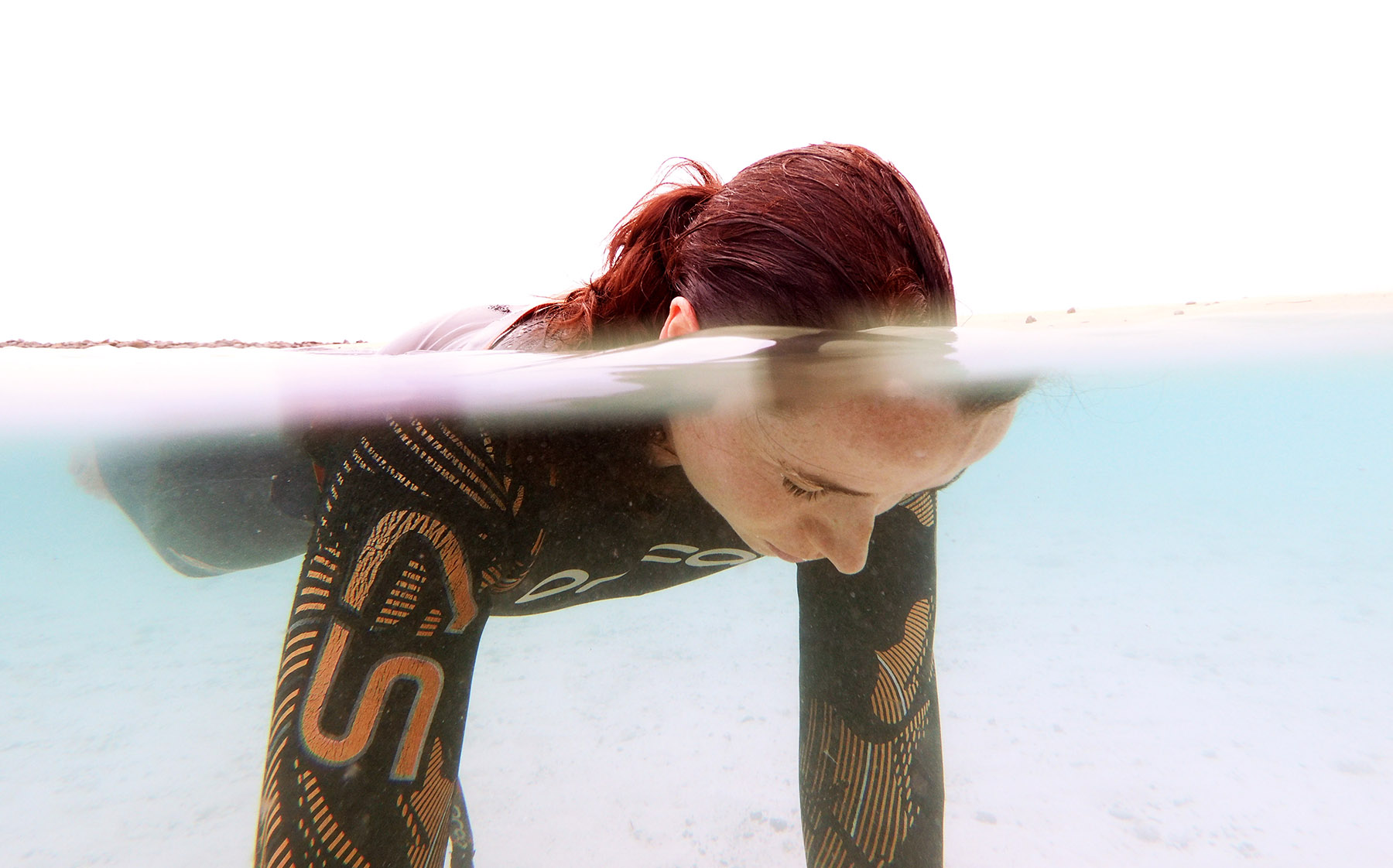
Imagine being submerged in the tranquil embrace of crystal-clear water, surrounded by the serene beauty of the underwater world. Freediving offers a unique form of escape from the chaos of everyday life. The calming effects of water combined with the practice of controlled breath-holding create an environment where stress melts away.
The sensation of weightlessness and the rhythmic nature of freediving breaths provide a natural sense of relaxation. As you descend into the depths of the ocean or explore submerged caves, the worries of the world above dissipate, leaving you with a profound sense of calm.
Benefits of Freediving for Stress Relief:
Decreased heart rate and blood pressure
Release of endorphins, the body's natural stress relievers
Enhanced mental clarity and focus
The Science Behind Stress Reduction in Freediving
Understanding why freediving is such an effective stress relief activity requires delving into the science behind it. During a freedive, the body undergoes significant physiological changes that contribute to stress reduction. One of the key factors is the body's response to breath-holding and immersion in water.
When you submerge yourself in water, your body experiences a natural calming response. Your heart rate decreases, and your blood pressure lowers. This phenomenon is known as the mammalian dive reflex, an ancient survival mechanism that promotes efficient oxygen use and conserves energy during underwater exploration.
As you continue to explore the underwater world, the body's production of endorphins, the body's natural stress-relieving hormones, increases. These endorphins induce a state of euphoria and well-being, counteracting the effects of stress and anxiety.
Practical Tips for Using Freediving for Stress Relief
For those interested in incorporating freediving into their stress management routines, there are practical steps to consider:
Seek Professional Training: Enroll in a certified freediving course to learn proper techniques and safety measures.
Practice Mindful Breathing: Focus on deep, rhythmic breaths both during and outside of freediving sessions to promote relaxation.
Set Realistic Goals: Gradually increase your freediving skills to ensure a safe and enjoyable experience.
Connect with Nature: Embrace the beauty of the underwater world, and let the serenity of the ocean calm your mind.
Case Study: Sarah's Stress Reduction Journey
Sarah, a 35-year-old marketing executive, was battling chronic stress that affected her work performance and personal life. Seeking a solution, she discovered freediving. After completing a certified course and regular practice, Sarah experienced remarkable changes. Her heart rate and blood pressure lowered, and she reported feeling more relaxed and focused at work. Sarah's journey exemplifies the transformative power of freediving as a stress relief activity.
In conclusion, freediving offers a holistic approach to stress relief. Its combination of natural surroundings, physiological responses, and mindfulness techniques makes it a powerful tool for reducing stress in today's fast-paced world.
2. Connection with Nature
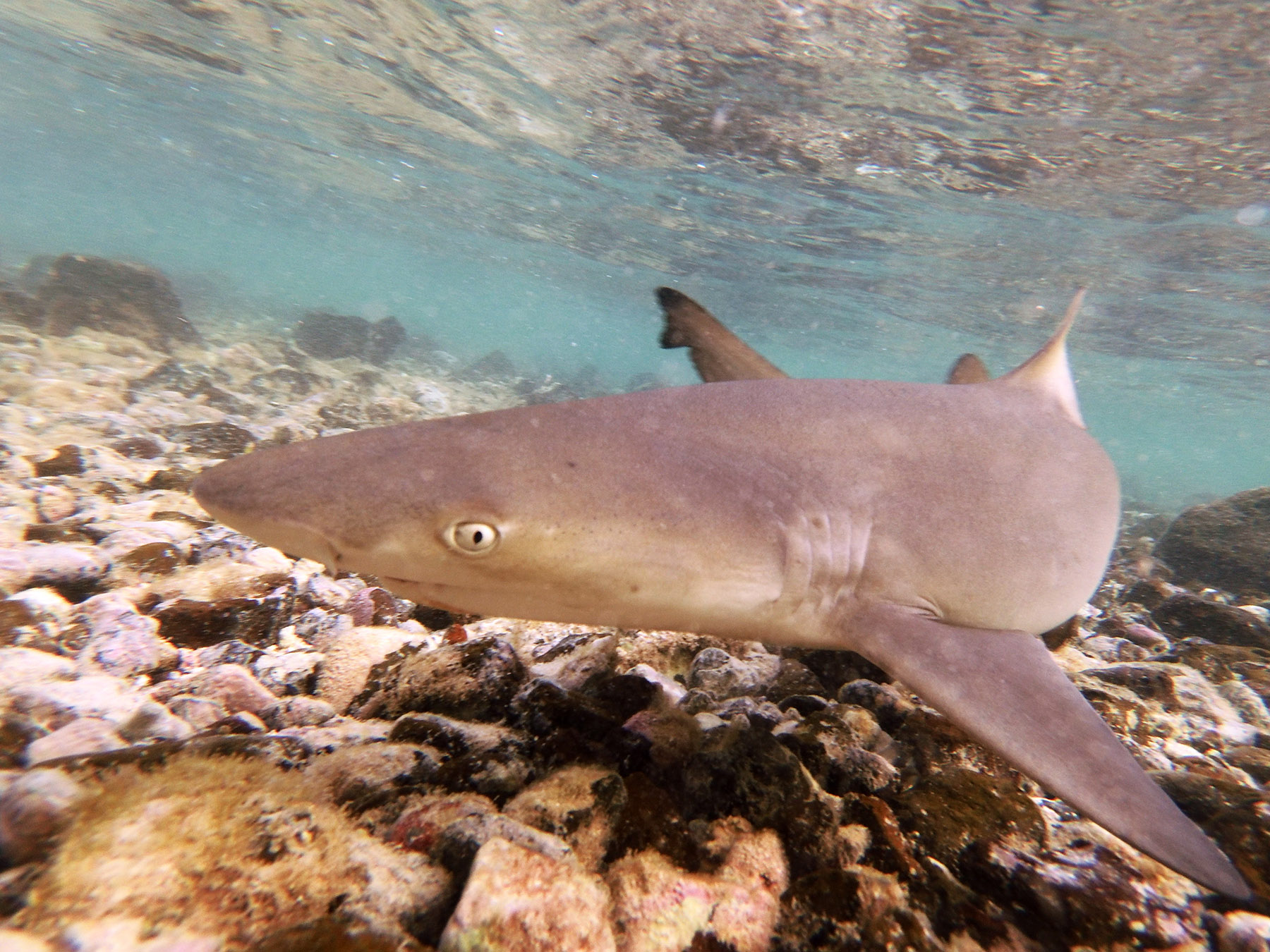
Explore how freediving fosters a profound connection with the natural world.
Freediving offers a remarkable opportunity to immerse oneself in the beauty and wonder of the natural world like never before. As you descend into the depths of the ocean, you are transported to a realm where time seems to stand still, and the chaos of daily life fades into the background. The immersive experience of freediving allows you to become one with the aquatic environment, forging a deep and profound connection with nature.
Benefits of Connecting with Nature through Freediving:
Enhanced mental clarity and a sense of inner peace
Heightened appreciation for the beauty of marine life and underwater ecosystems
Reduced stress and anxiety through nature immersion
When you slip beneath the surface of the water, you are greeted by a sensory feast. The gentle caress of the ocean currents, the play of light filtering through the water, and the mesmerizing dance of marine life create an otherworldly experience that is both humbling and exhilarating. Freediving allows you to see, hear, and feel the underwater world in a way that few other activities can match.
Building an Appreciation for Marine Environments
One of the most remarkable aspects of freediving is how it can transform your perspective on marine environments. As you spend more time exploring underwater ecosystems, you gain a deeper understanding of the delicate balance that sustains life beneath the waves. The intricate relationships between different species and the importance of preserving these ecosystems become apparent.
Case Study: John's Journey into Marine Conservation
John, a passionate freediver, initially pursued the sport for its adventure and relaxation. However, as he delved deeper into the underwater world, he developed a profound appreciation for marine environments. Inspired by his experiences, he decided to get involved in marine conservation efforts. John's story underscores how freediving can lead to a personal mission to protect our oceans and marine life.
The Therapeutic Aspect of Nature Connection
Connecting with nature through freediving is not just about the physical experience—it also has profound psychological and emotional benefits. The therapeutic aspect of being submerged in water and surrounded by marine life is well-documented. The peace and tranquility that envelop you underwater have a calming effect on the mind.
Many freedivers report a sense of mental clarity and a release of stress and tension during and after their dives. The underwater environment encourages mindfulness, as you must focus on your breath and surroundings. This meditative quality can lead to reduced anxiety and an overall sense of well-being.
Promoting Conservation Through Connection
A strong connection to the underwater world can be a powerful motivator for conservation efforts. As individuals become more intimately acquainted with marine life and ecosystems through freediving, they are often inspired to take action to protect them. This connection fosters a sense of responsibility and a desire to advocate for the preservation of our oceans.
Ways Freedivers Can Contribute to Marine Conservation:
Participating in underwater cleanup initiatives
Supporting marine conservation organizations through donations or volunteer work
Spreading awareness about the importance of ocean conservation
In conclusion, freediving offers not only an escape into the depths of the ocean but also a profound connection with nature that can transform individuals and inspire them to become stewards of our fragile marine environments.
Physiological Science Behind Freediving
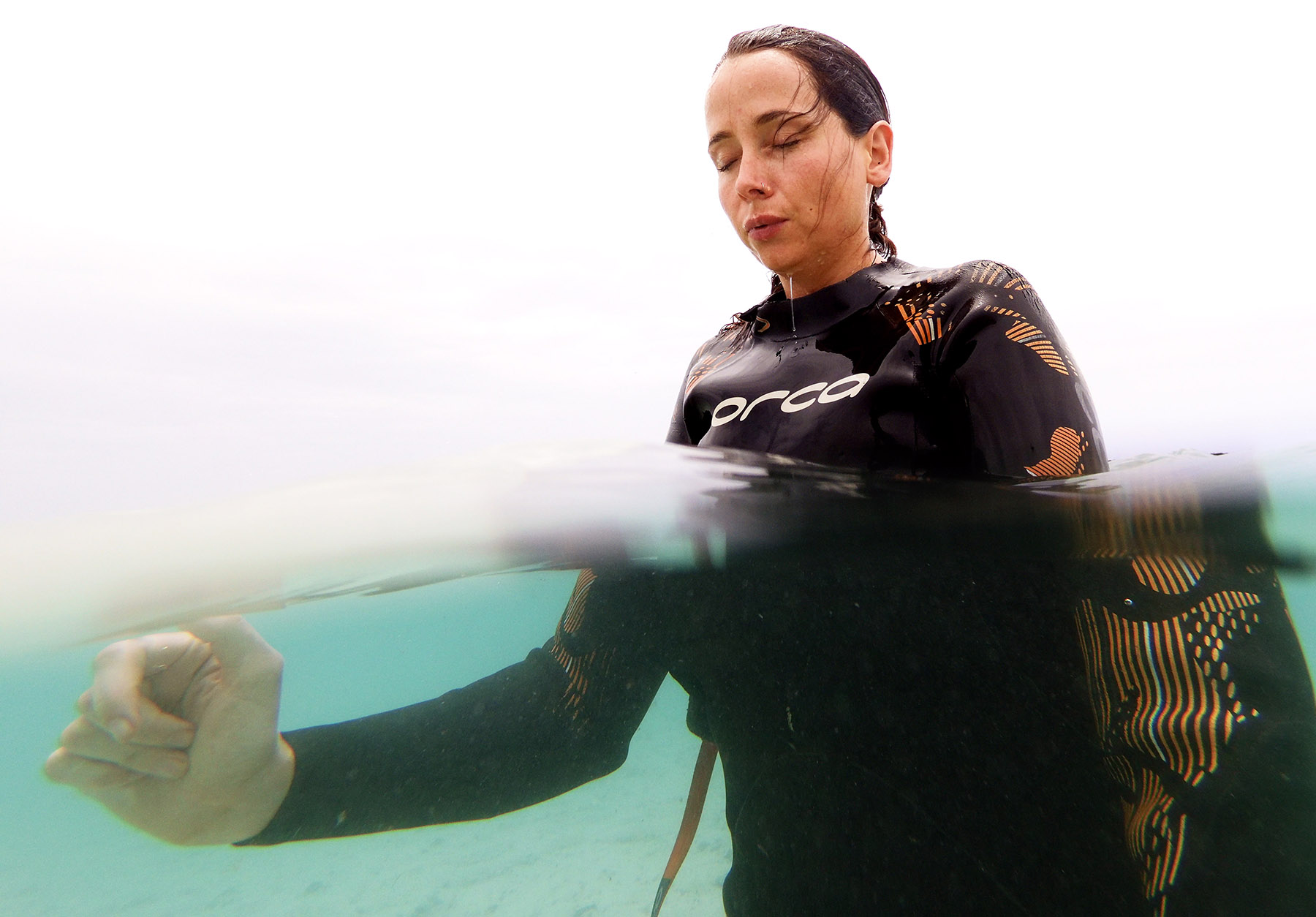
Freediving, the art of diving underwater without the aid of breathing apparatus, engages the body in a remarkable physiological dance. As soon as a freediver descends beneath the water's surface, a cascade of physiological changes is set in motion. These changes are not only fascinating but also play a crucial role in the success and safety of the dive. Understanding the basic physiology of freediving is essential for both beginners and experienced divers.
Key Physiological Changes in Freediving:
Immediate decrease in heart rate upon submersion
Redistribution of blood flow to vital organs
Activation of the mammalian dive reflex
These physiological adaptations not only enable freedivers to explore the underwater world but also contribute significantly to mental relaxation and overall well-being.
The Initial Dive Response
When a freediver first enters the water and holds their breath, the body initiates what is known as the diving response. This immediate reaction includes a slowing of the heart rate, known as bradycardia, and a redirection of blood flow away from peripheral muscles and towards the heart and brain. These changes are the body's way of conserving oxygen and prioritizing vital functions.
Case Study: Mark's Dive Response
Mark, an experienced freediver, participated in a study measuring his initial dive response. Upon submersion, his heart rate dropped from 80 beats per minute to just 40 within seconds. This dramatic reduction in heart rate allowed Mark to maximize his oxygen stores and stay submerged for extended periods, demonstrating the effectiveness of the diving response in experienced freedivers.
Oxygen Utilization and Conservation
One of the remarkable adaptations in freediving is the body's ability to utilize and conserve oxygen efficiently. As a diver descends, the body enters a state of oxygen conservation. Oxygen is redirected to essential organs, while non-essential functions are temporarily suppressed. This oxygen-saving strategy allows freedivers to extend their dive times and explore the underwater world more deeply.
Physiological Oxygen Conservation Mechanisms:
Shunting blood away from peripheral muscles to vital organs
Reducing metabolic rate to decrease oxygen consumption
Storing oxygen in myoglobin in muscle tissues for later use
These physiological adaptations enable freedivers to stay submerged for minutes on a single breath, emphasizing the incredible synergy between the human body and the underwater world.
Effects on Heart Rate and Blood Flow
While underwater, freedivers experience a unique interplay between heart rate and blood flow. The initial drop in heart rate upon submersion is followed by a gradual increase as the body adapts to the underwater environment. Blood flow is also redistributed, with an emphasis on maintaining oxygen delivery to the brain and heart. These changes contribute to the overall safety and success of a freedive.
Case Study: Sarah's Heart Rate Variation
Sarah, a freediving enthusiast, participated in a study measuring her heart rate during a dive. Her heart rate initially dropped to 50 beats per minute upon submersion but gradually increased to 70 as she continued her dive. This adaptation allowed her to maintain mental clarity and physical performance during her underwater exploration.
The Role of the Mammalian Dive Reflex
The mammalian dive reflex is a critical component of freediving physiology. This reflex, found in all mammals, including humans, is triggered by submersion in cold water and breath-holding. It initiates several protective mechanisms, such as vasoconstriction (narrowing of blood vessels) and bradycardia (slowing of the heart rate), to conserve oxygen and promote survival during underwater exploration.
Significance of the Mammalian Dive Reflex in Freediving:
Enhances oxygen conservation and utilization
Reduces the risk of hypoxia (oxygen deficiency)
Enables freedivers to reach greater depths and stay submerged longer
In conclusion, freediving is not just an adventure; it is a captivating exploration of the intricate physiology that allows us to connect with the underwater world. Understanding the physiological science behind freediving not only enhances the experience but also underscores the remarkable adaptability of the human body.
3. Building Self-Confidence
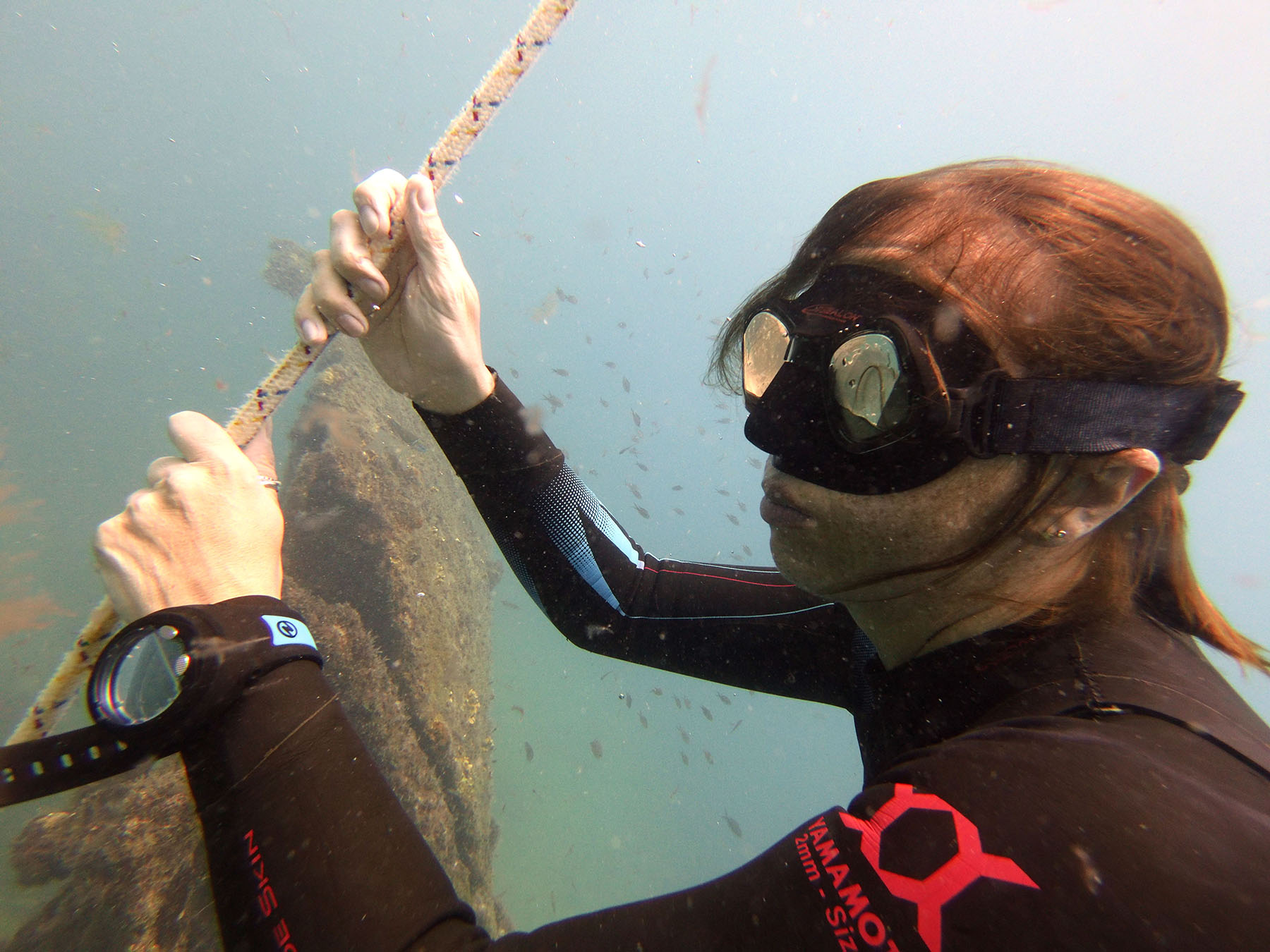
Freediving isn't just about exploring the depths of the ocean; it's also a journey of self-discovery and empowerment. Numerous individuals have discovered newfound self-confidence through this exhilarating sport. Let's dive into the stories of a few of these remarkable individuals who have transformed their lives through freediving.
Case Study: Emily's Journey to Self-Confidence
Emily, a timid introvert, found herself drawn to the world of freediving as a way to challenge her fears and boost her self-esteem. Initially, the thought of diving deep into the ocean terrified her. However, with dedicated training and support from her freediving community, Emily gradually built the confidence to conquer her fears. Today, she not only explores underwater caves but also stands as an inspiration to others, demonstrating that self-confidence can be achieved through perseverance and determination.
Key Takeaways:
Individuals from various backgrounds can gain self-confidence through freediving.
Supportive communities play a significant role in empowering freedivers.
Overcoming fears is a transformative experience in freediving.
Facing and Overcoming Fears
Freediving is inherently challenging, often pushing individuals out of their comfort zones. It demands that participants confront fears and uncertainties head-on. Whether it's the fear of deep water, the unknown of what lies beneath, or the anxiety of holding one's breath, freediving forces individuals to face their deepest apprehensions.
By consistently pushing boundaries and stepping into the unknown, freedivers gradually build a sense of mastery over their fears. Overcoming these challenges not only enhances self-confidence but also cultivates mental resilience that can be applied to everyday life.
Case Study: Michael's Fear of the Deep
Michael had always been afraid of the deep ocean. The thought of diving into the abyss terrified him. However, inspired by a friend's freediving journey, he decided to give it a try. Through patient training and gradual exposure to deeper depths, Michael conquered his fear of the deep. This achievement not only boosted his self-confidence but also inspired him to tackle other long-standing fears in his life.
Setting and Achieving Personal Goals
Freediving encourages individuals to set specific goals and work diligently to achieve them. Whether it's reaching a certain depth, holding one's breath for an extended period, or mastering a new freediving technique, these goals provide a roadmap for personal growth and development.
As freedivers strive to accomplish their objectives, they experience a sense of accomplishment that bolsters self-esteem. The act of setting and achieving personal goals in the challenging underwater environment fosters a belief in one's abilities and the capacity to overcome obstacles.
Benefits of Goal Achievement in Freediving:
Increased self-assurance and belief in one's abilities
Greater motivation to tackle challenges in everyday life
Enhanced problem-solving skills and determination
Celebrating Personal Achievements
In the world of freediving, each personal achievement, no matter how small, is celebrated. Acknowledging and appreciating individual milestones is a fundamental part of the freediving culture. Whether it's a new personal best depth, a longer breath-hold time, or a smoother technique execution, these achievements are recognized and applauded.
These celebrations of personal accomplishments play a vital role in boosting self-confidence. They reinforce the belief that one's efforts are worthwhile and that progress is being made. This positive reinforcement translates into a heightened sense of self-worth that extends beyond the underwater world.
Case Study: Maria's Journey of Milestones
Maria, a freediving enthusiast, kept a journal of her achievements throughout her freediving journey. Every time she reached a new depth or improved her breath-hold time, she marked it as a milestone. This journal became a source of motivation and self-confidence for her. It reminded Maria of her continuous progress and served as a testament to her capabilities.
Transferring Confidence to Everyday Life
Perhaps one of the most significant benefits of building self-confidence through freediving is the ability to transfer this newfound assurance to various aspects of everyday life. The skills acquired in freediving—such as facing fears, goal setting, and celebrating achievements—can be directly applied to challenges beyond the underwater realm.
Freedivers often find that the self-confidence gained in their underwater adventures empowers them to tackle professional challenges, personal goals, and relationships with newfound strength and determination.
Practical Applications of Freediving Confidence:
Enhanced public speaking skills and reduced anxiety
Increased assertiveness in career and decision-making
Improved resilience in the face of life's challenges
In conclusion, freediving is not only an exhilarating sport but also a powerful tool for building self-confidence. Through the exploration of personal stories, the conquering of fears, the achievement of goals, the celebration of milestones, and the transfer of confidence to everyday life, freedivers unlock a sense of empowerment that transcends the depths of the ocean.
Psychological Science Behind Freediving
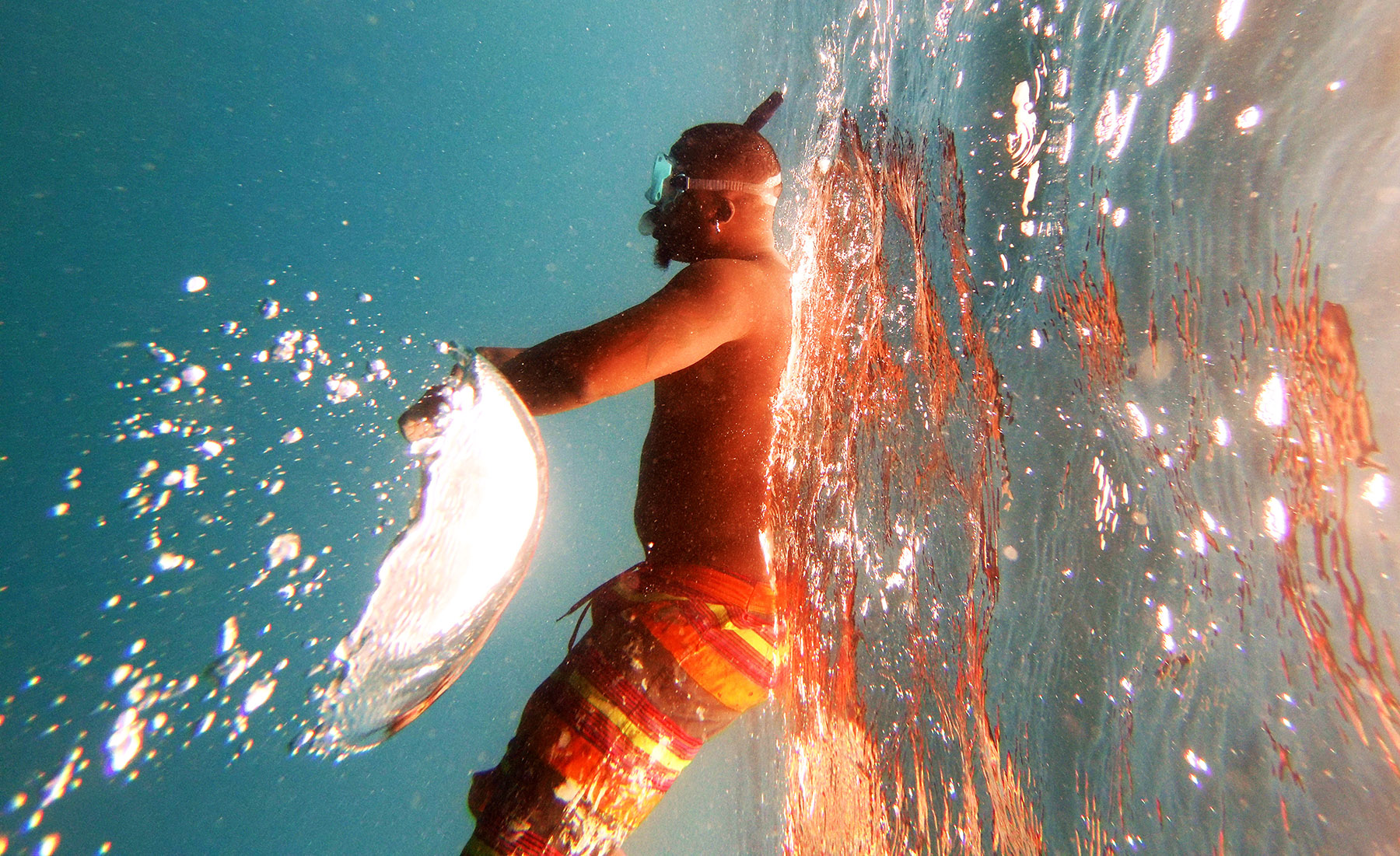
Freediving, more than just a physical endeavor, delves into the intricacies of the human mind. It challenges individuals to confront their deepest fears and anxieties, offering profound insights into psychological resilience. Let's explore the remarkable psychological science behind freediving and how it transforms the minds of those who venture into the underwater world.
Case Study: Sarah's Triumph Over Anxiety
Sarah, who had struggled with anxiety for years, turned to freediving as a way to confront her fears head-on. The first time she submerged herself in the deep ocean, her heart raced, and panic set in. But with guided breathing techniques and supportive mentors, Sarah learned to manage her anxiety. Over time, she not only conquered her fear but also gained invaluable skills for managing anxiety in other aspects of her life.
Key Psychological Takeaways:
Freediving forces individuals to confront and manage fear and anxiety.
Guided breathing and mindfulness techniques are effective tools for anxiety management.
The experience of overcoming fear contributes to psychological resilience.
The Role of Mindfulness and Concentration
Freediving demands a high level of mindfulness and concentration. When you are submerged in the depths of the ocean, there is no room for distractions. Every breath, every movement, and every thought must be purposeful and focused. This requirement for intense concentration fosters mental clarity and enhances overall mental well-being.
Case Study: David's Journey to Mindfulness
David, a corporate executive, found solace in freediving as a way to escape the demands of his high-pressure job. Through training in mindfulness and concentration techniques, he learned to be fully present in the moment, whether submerged in the ocean or facing boardroom challenges. The mental skills he acquired through freediving became instrumental in his professional life, resulting in improved decision-making and reduced stress.
Achieving Flow States
One of the most captivating psychological phenomena in freediving is the ability to enter "flow" states. These states are characterized by intense concentration and a loss of self-consciousness. Freedivers often describe the feeling of being completely absorbed in the underwater environment, where time seems to stand still, and all distractions fade away.
Flow states in freediving not only enhance the overall experience but also promote mental well-being. They provide a break from the constant mental chatter and worries of everyday life, offering a sense of profound peace and tranquility.
Benefits of Flow States in Freediving:
Reduced stress and anxiety
Enhanced mental clarity and creativity
Improved emotional well-being
Building Mental Toughness
Freediving is not without its mental challenges. The need for self-discipline, resilience, and emotional control is paramount. As individuals face these challenges head-on, they gradually build mental toughness and emotional resilience. The ability to remain calm under pressure and maintain focus during challenging dives extends to other areas of life.
Case Study: Alex's Path to Emotional Resilience
Alex, a freediving instructor, has witnessed numerous individuals transform through the sport. He recounts the story of one student who struggled with emotional volatility. Through disciplined training and gradual exposure to more challenging dives, this student learned to manage his emotions effectively. The mental toughness developed in freediving allowed him to navigate challenging situations in his personal and professional life with composure and confidence.
In conclusion, freediving isn't just about exploring the depths; it's a profound journey into the human psyche. By confronting fear and anxiety, embracing mindfulness and concentration, experiencing flow states, and building mental toughness, freedivers unlock the remarkable psychological benefits that extend far beyond the underwater world.
4. Physical Fitness
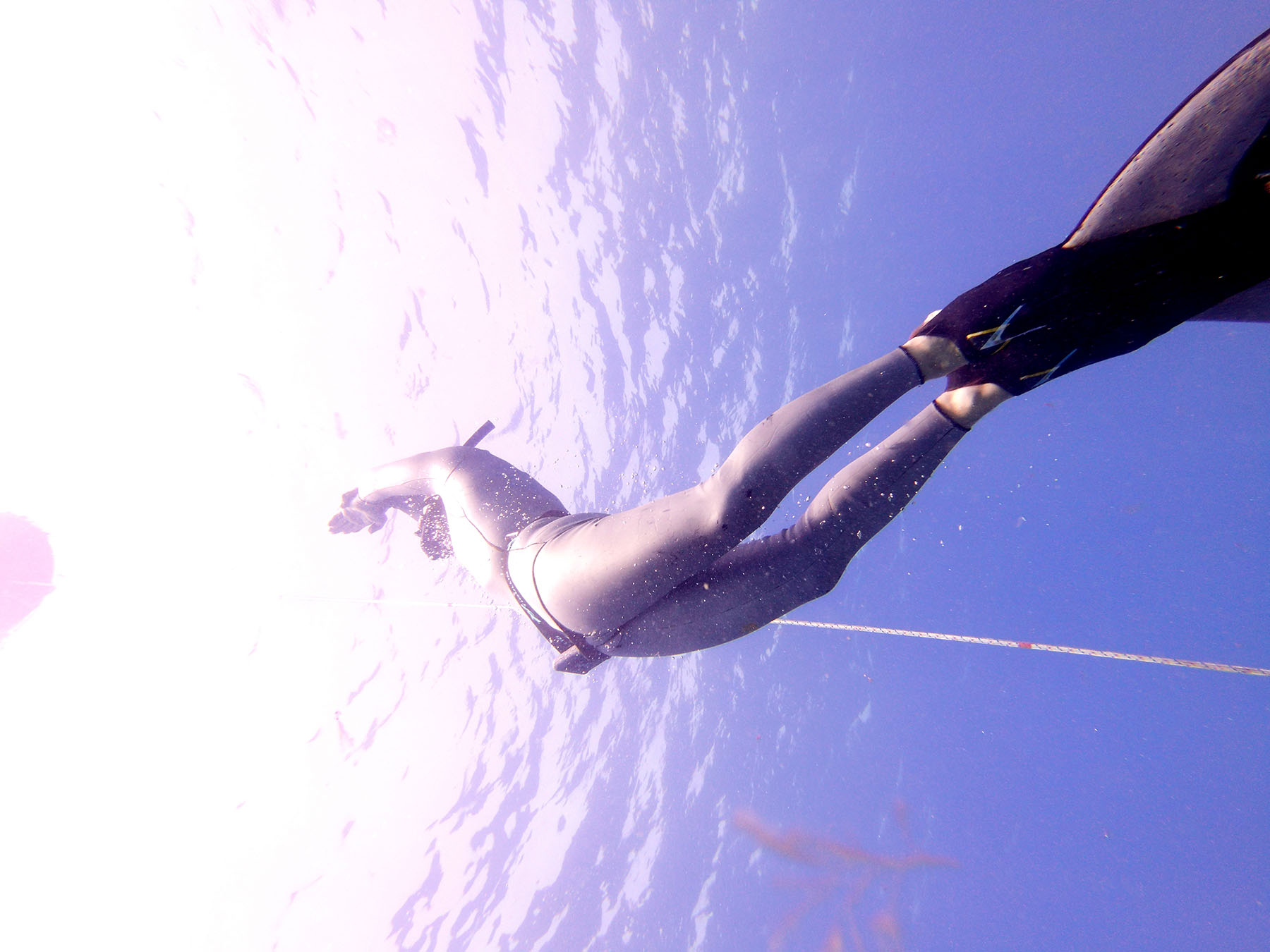
When people think of freediving, they often envision serene underwater exploration. However, beneath the surface lies a powerful full-body workout that engages various muscle groups. Freediving is not just an adventure; it's a fantastic way to stay physically fit.
Case Study: Sarah's Transformation
Sarah, an avid freediver, shares her experience. "Freediving completely reshaped my physique. I noticed increased muscle tone in my legs, arms, and core. The resistance of the water during dives provides a natural form of strength training, and I've never felt more physically fit."
Key Physical Fitness Benefits of Freediving:
Engagement of core, leg, and arm muscles during dives
Improved muscle tone and overall strength
Enhanced cardiovascular fitness
Calorie Burn and Weight Management
One of the surprising benefits of freediving is its calorie-burning potential. Diving requires a considerable amount of energy, especially in challenging conditions. As a result, freedivers often experience calorie expenditure similar to that of other rigorous activities.
Case Study: Mark's Calorie Burn
Mark decided to track his calorie burn during freediving sessions. In a single hour of diving, he burned approximately 600-800 calories. This discovery motivated him to incorporate freediving into his weight loss journey, contributing to his successful weight management.
Freediving's calorie-burning benefits make it a valuable addition to weight loss efforts. It's an enjoyable way to shed pounds while exploring the underwater world.
Enhancing Flexibility and Endurance
Freediving is not just about strength; it also improves flexibility and endurance. The movements required for diving, including finning and navigating underwater, promote greater flexibility in the limbs and spine. Over time, this enhanced flexibility can lead to improved overall mobility.
Benefits of Enhanced Flexibility and Endurance in Freediving:
Reduced risk of muscle strain and injury
Improved range of motion for underwater movements
Greater endurance for longer, more enjoyable dives
Regular freediving helps individuals build the physical fitness foundation needed to explore the underwater world comfortably and confidently.
5. Balancing Physical Fitness and Fun
One of the most appealing aspects of freediving as a fitness activity is its inherent sense of fun and adventure. Unlike traditional gym workouts, freediving offers the excitement of exploration, making it more sustainable for fitness and weight loss goals.
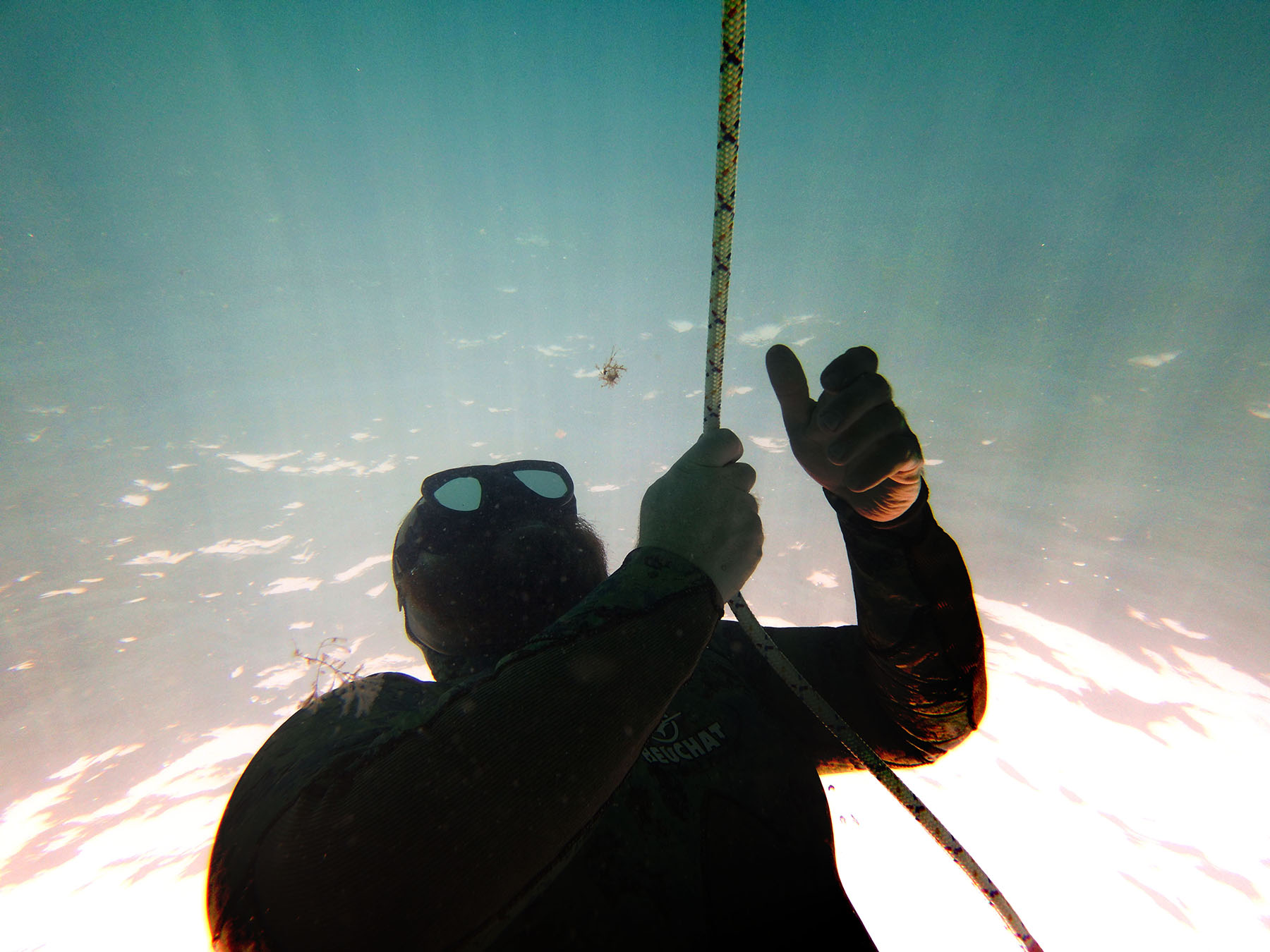
Case Study: Jenny's Joyful Fitness Journey
Jenny struggled to stay motivated with conventional workouts until she discovered freediving. The thrill of diving and the sense of wonder beneath the waves transformed her perspective on fitness. She not only achieved her weight loss goals but also found a lifelong fitness passion.
In conclusion, freediving isn't just a sport; it's a holistic approach to physical fitness and weight management. With its full-body workout, calorie-burning potential, flexibility and endurance benefits, and the pure joy of exploration, freediving offers a unique and enjoyable path to achieving fitness goals.
6. Improving Lung Capacity
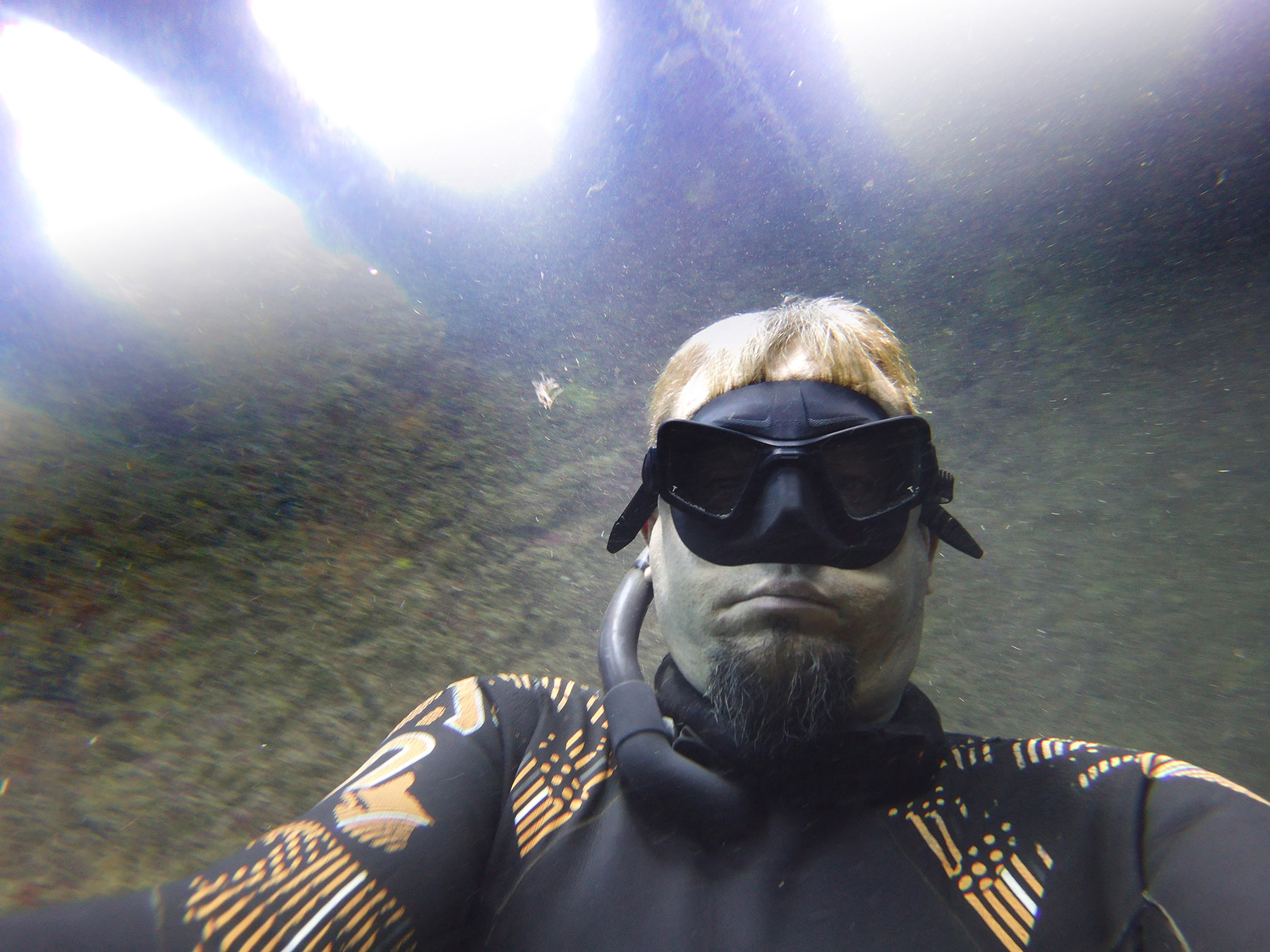
Lung capacity plays a pivotal role in freediving, where every breath-hold and dive hinges on the ability to efficiently use the available oxygen. As individuals delve deeper into the world of freediving, they discover that their lung capacity improves significantly, resulting in not only enhanced underwater performance but also substantial benefits for respiratory health.
Case Study: John's Remarkable Lung Capacity
John, an experienced freediver, decided to undergo a lung capacity test before and after a year of dedicated practice. The results were astonishing. His lung capacity had increased by over 30%, and he attributed this remarkable improvement to his consistent freediving routine. John's newfound lung capacity not only allowed him to explore greater depths but also provided him with an overall sense of vitality and well-being.
Key Lung Capacity Benefits of Freediving:
Enhanced oxygen efficiency
Improved breath-holding capabilities
Greater respiratory endurance
The Role of Lung Capacity in Freediving
Lung capacity is paramount in freediving because it determines how long an individual can hold their breath and how effectively oxygen is utilized. Freedivers understand that a larger lung capacity provides a competitive edge, allowing them to stay submerged for longer periods and reach greater depths.
Benefits of Increased Lung Capacity in Freediving:
Extended dive times and exploration opportunities
Reduced risk of hypoxia (oxygen deficiency)
Enhanced safety and confidence during dives
Adaptations Through Breath-Holding
Regular freediving practice leads to adaptations that enhance lung capacity. The act of holding one's breath during dives forces the body to become more efficient in oxygen utilization. Over time, this results in a measurable increase in lung capacity.
Case Study: Emma's Journey to Improved Lung Capacity
Emma, a novice freediver, decided to measure her lung capacity at the beginning of her training. As she progressed in her freediving journey, she noticed that she could comfortably hold her breath for longer periods. Subsequent lung capacity tests confirmed that her capacity had increased by 15% in just a few months. Emma's newfound lung capacity not only allowed her to enjoy longer and more rewarding dives but also contributed to her overall well-being.
Breath-Holding Techniques
Freediving incorporates specific breath-holding techniques that are designed to improve lung capacity. These techniques focus on controlled inhalation and exhalation patterns, allowing freedivers to maximize their lung potential and extend their breath-holding abilities.
Common Freediving Breath-Holding Techniques:
Diaphragmatic breathing for efficient oxygen intake
Breath-hold tables for progressive training
Exhalation purges to remove stale air before a dive
Benefits Beyond Freediving
The benefits of increased lung capacity extend beyond the world of freediving. Individuals who engage in regular freediving often find that their improved respiratory health leads to enhanced overall well-being. With more oxygen available to the body, they experience increased vitality, reduced fatigue, and improved physical performance in everyday activities.
Case Study: Maria's Revitalized Life
Maria, a freediving enthusiast, noticed a significant improvement in her energy levels and stamina after months of consistent practice. She found herself less fatigued during her daily workouts and activities, and her general sense of vitality was rejuvenated. Freediving not only enriched her underwater experiences but also revitalized her daily life.
In conclusion, freediving is not just about exploring the depths of the ocean; it's a journey that can transform respiratory health and improve lung capacity significantly. With dedication, individuals can unlock the remarkable benefits of increased lung capacity both underwater and in their daily lives.
7. The Freedom of Ocean Exploration
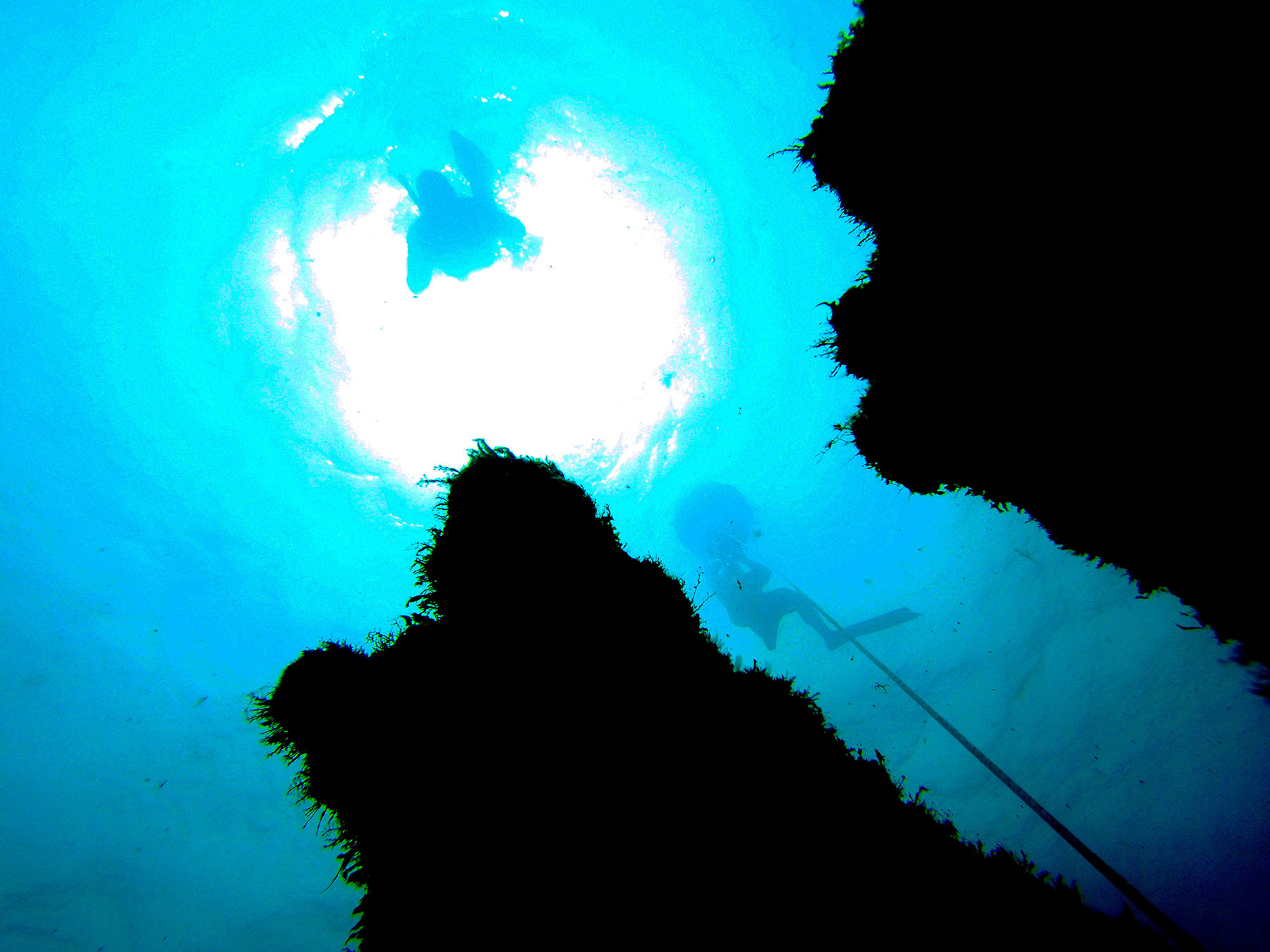
Freediving is an extraordinary journey into the heart of the ocean, where the human body becomes a vessel for exploration. It offers the unique freedom to move gracefully through the underwater world, providing experiences that are nothing short of awe-inspiring. Let's dive into the incredible world of freediving and the mesmerizing encounters with marine life it offers.
Case Study: Lisa's Encounter with Dolphins
Lisa, an avid freediver, shares her unforgettable experience of encountering a pod of dolphins while exploring the deep blue. "It was a magical moment," she recalls. "The dolphins swam gracefully around me, and for a brief time, I felt like I was part of their world. It was a connection with nature that I'll cherish forever."
Key Experiences of Freediving:
Graceful movement through the ocean
Close encounters with marine creatures
Profound connection with the underwater world
Exploring the Underwater World with Freediving
One of the most liberating aspects of freediving is the freedom it offers in exploring the ocean. Unlike scuba diving, which requires cumbersome equipment, freedivers rely on their own natural abilities. This allows for a unique and graceful interaction with the marine environment.
Benefits of Freediving's Freedom:
Enhanced sense of connection with the ocean
Ability to move freely and gracefully
Reduced impact on marine ecosystems
8. Close Encounters with Marine Life
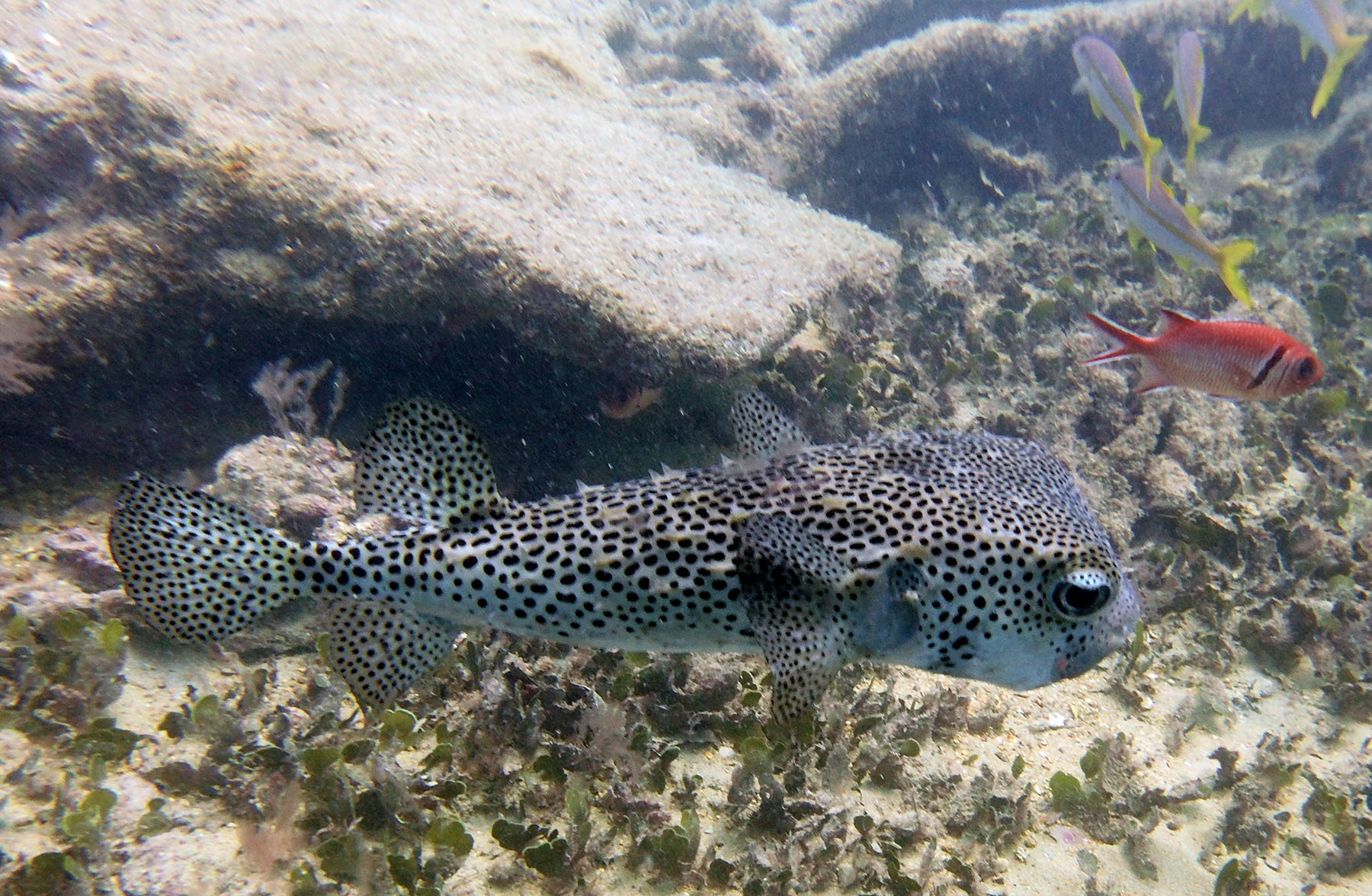
One of the greatest joys of freediving is the opportunity for close encounters with marine life. Freedivers often find themselves face to face with dolphins, turtles, colorful fish, and other captivating creatures. These encounters are not only thrilling but also deeply enriching.
Case Study: David's Magical Turtle Encounter
David, a seasoned freediver, describes his encounter with a giant sea turtle. "I was slowly descending when I noticed the turtle gracefully gliding beside me. It was as if we were dancing together in the underwater ballet. The experience left me with a profound sense of wonder and gratitude for the beauty of the ocean."
Discovering Hidden Wonders
Freediving unlocks the door to a world of hidden wonders beneath the waves. Explorations often lead to the discovery of underwater caves, ancient shipwrecks, and vibrant coral reefs. These hidden gems add an element of excitement and mystery to every dive.
Exciting Discoveries in Freediving:
Exploring underwater caves and tunnels
Uncovering the history of sunken shipwrecks
Witnessing the vibrant colors of coral reefs
9. Photography
Freediving not only provides remarkable experiences but also serves as a valuable tool for underwater photography. Many freedivers capture the breathtaking beauty of the ocean, sharing it with the world to promote conservation efforts and raise awareness about marine ecosystems in need of protection.
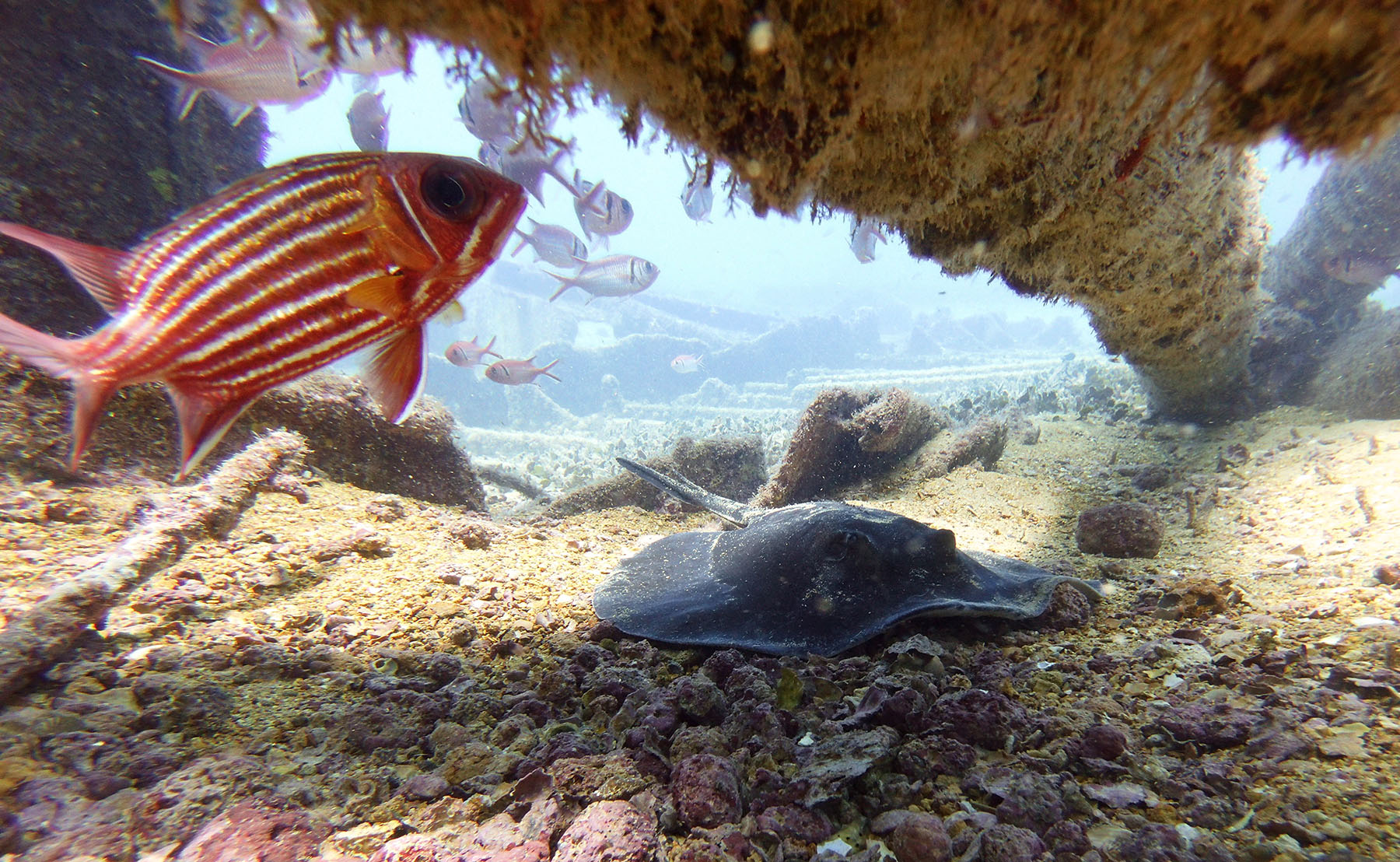
Case Study: Alex's Conservation Campaign
Alex, a passionate freediver and photographer, uses his underwater images to advocate for marine conservation. His photos have been featured in exhibitions and campaigns, drawing attention to the urgent need to protect the oceans. "Freediving allows me to capture the essence of the underwater world and inspire others to become stewards of the ocean," Alex says.
In conclusion, freediving is a gateway to an enchanting underwater world filled with awe-inspiring encounters, hidden wonders, and opportunities for conservation. It's more than a sport; it's a profound journey into the heart of the ocean, leaving those who explore it forever transformed.
10. Nature Conservation
Highlight the importance of protecting underwater environments.
Our oceans and underwater ecosystems are under constant threat from pollution, overfishing, and climate change. The need to protect these delicate environments has never been more crucial. Freediving emerges as a unique and eco-friendly way to not only explore but also contribute to the conservation of underwater worlds.
Case Study: Sarah's Reef Restoration Project
Sarah, an experienced freediver, felt a deep connection to the coral reefs she encountered during her dives. She decided to take action by joining a reef restoration project. Through her efforts and the support of the freediving community, damaged reefs were rehabilitated, and marine life began to flourish once more.
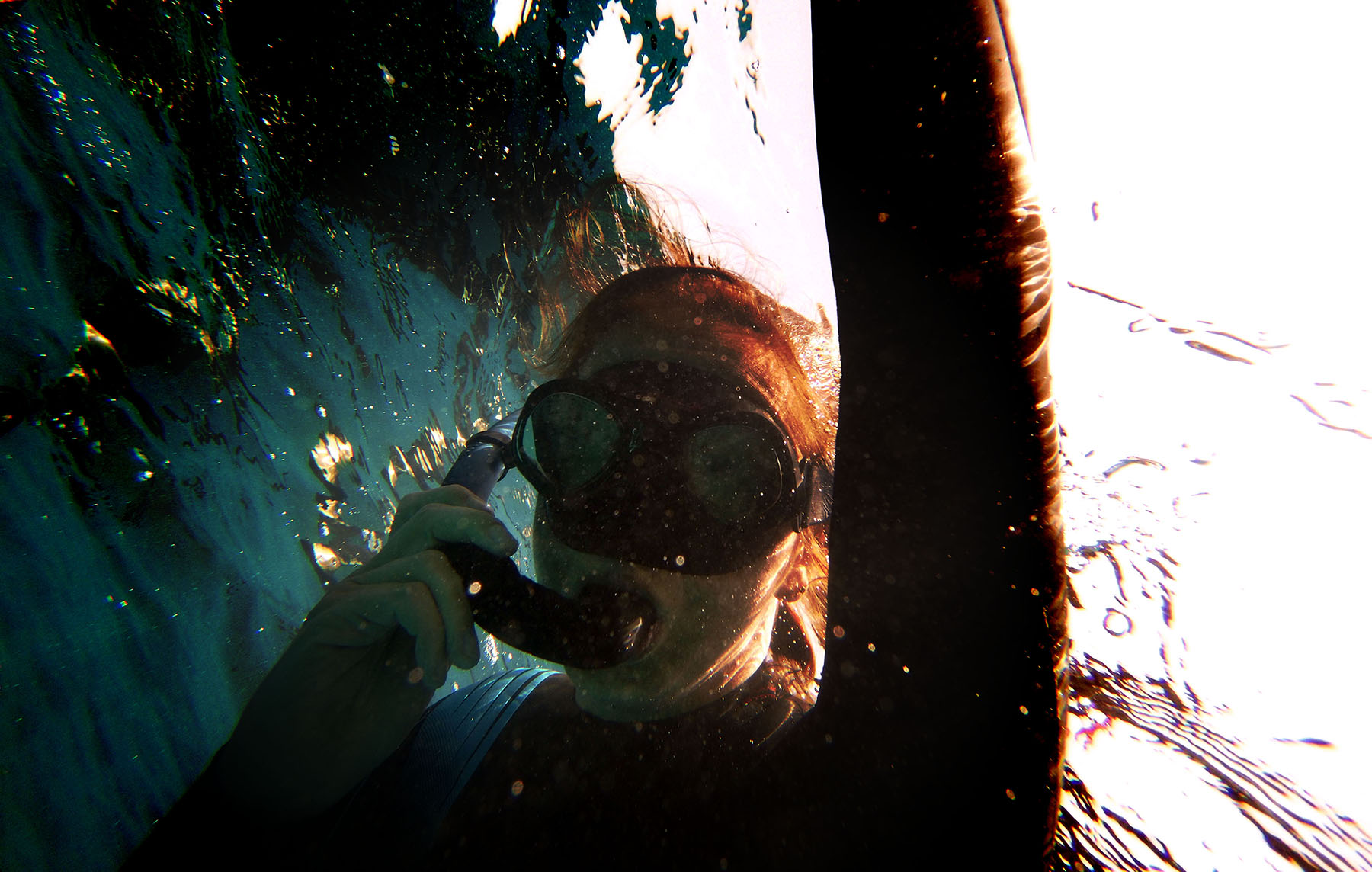
Key Conservation Benefits of Freediving:
Low-impact exploration of marine environments
Support for eco-friendly tourism
Raising awareness about conservation issues
Freediving isn't just a sport; it's a way to forge a deep connection with the natural world. By immersing oneself in the ocean and its wonders, individuals can develop a profound appreciation for marine life and the need to protect it. Consider freediving as an opportunity to embark on a journey of exploration and conservation.
Ways to Support Conservation Through Freediving:
Participate in marine cleanup and conservation projects
Advocate for sustainable fishing and tourism practices
Spread awareness about marine conservation through social media and community engagement
If you're inspired to start your freediving journey and contribute to conservation efforts, Cabo Verde, the "Country of No Stress" awaits. This enchanting destination offers pristine waters, expert instructors, and a stress-free environment for both beginners and experienced freedivers.
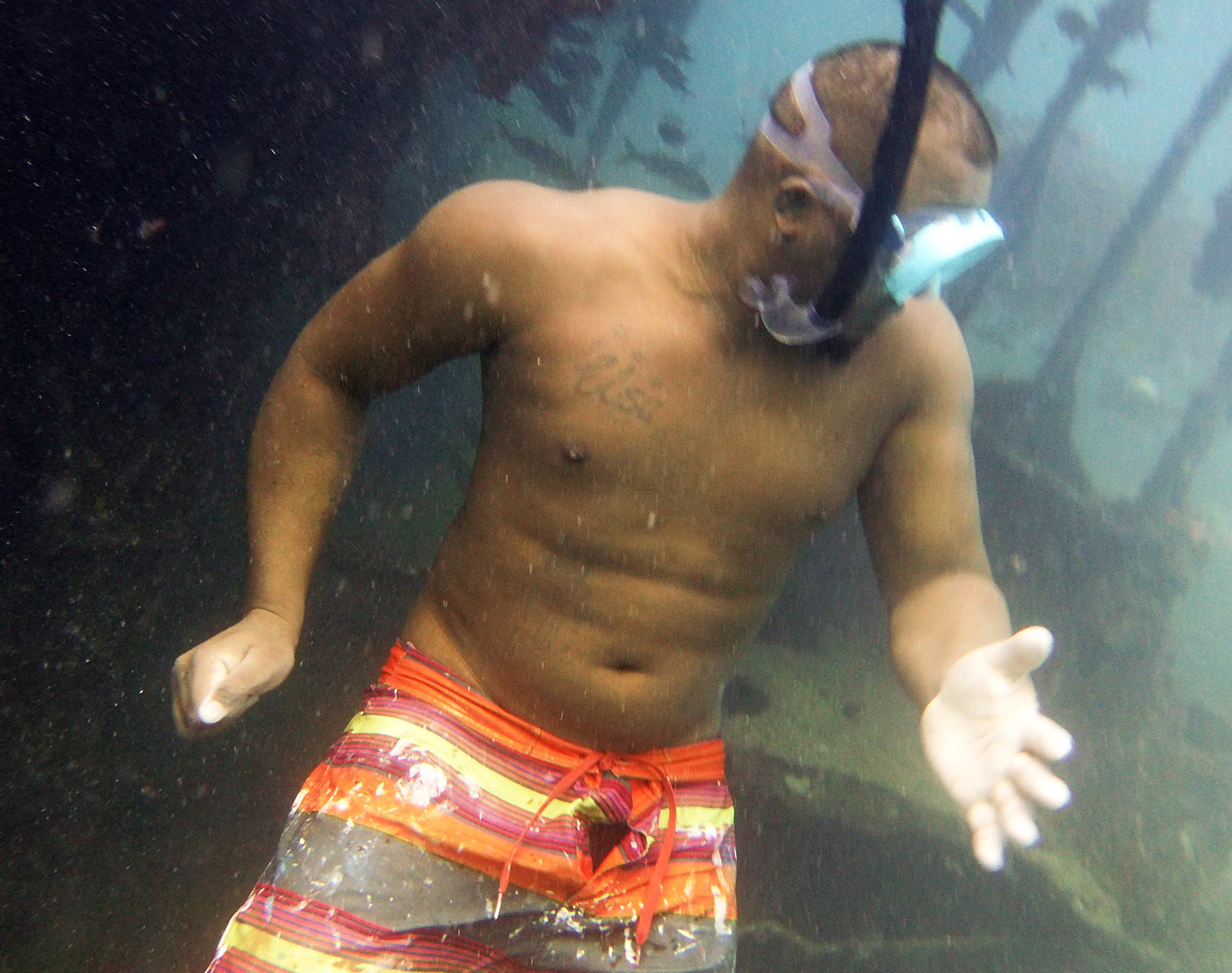
Case Study: James' Transformation in the "Country of No Stress"
James, a novice freediver, decided to embark on his training journey in the "Country of No Stress." The serene environment and top-notch instructors allowed him to progress quickly and confidently. By the end of his trip, James not only earned his freediving certification but also found a new passion for marine conservation.
If you're ready to take the plunge into freediving and conservation, the "Country of No Stress" beckons you. Explore the crystal-clear waters, discover the hidden wonders beneath the surface, and join a community of like-minded individuals dedicated to preserving our oceans.
Dive into a World of Mental Wellness with Apnea Boom Freediving School
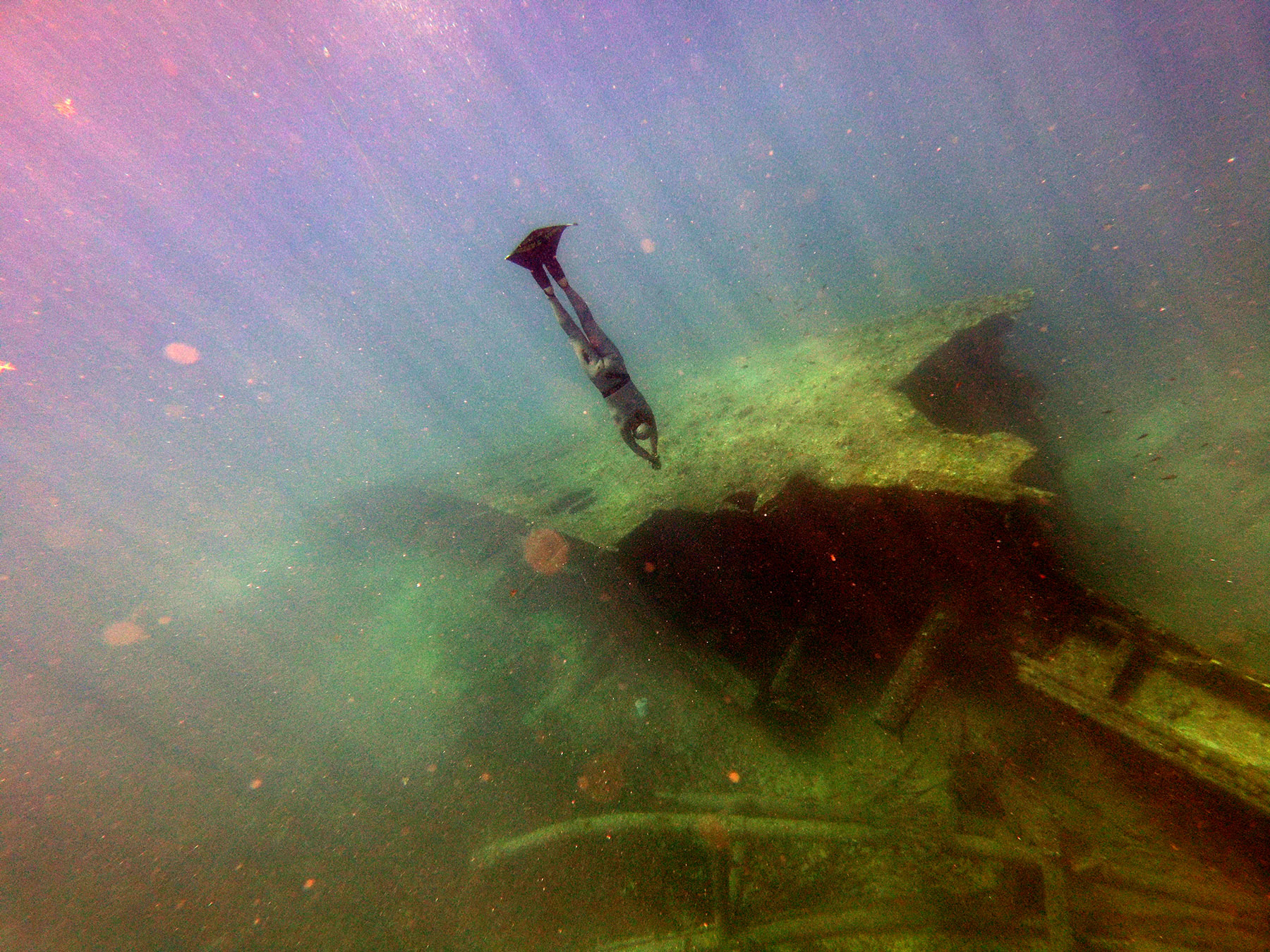
As the founder of Apnea Boom Freediving School, I've witnessed firsthand the transformative power of freediving on the mental well-being of our students. Throughout this exploration of the top 10 benefits of freediving, we've delved into the incredible ways this sport can enrich your life.
Summing Up the Key Mental Benefits:
Mindfulness and Stress Relief: Freediving allows you to escape the stress of the surface world and embrace mindfulness through deep, intentional breaths.
Connection with Nature: Submerging yourself in the underwater world fosters a profound connection with nature, leading to inner peace and appreciation.
Building Self-Confidence: Freediving challenges you to face fears and achieve personal goals, resulting in increased self-esteem and confidence.
Mental Resilience: Overcoming the psychological challenges of freediving cultivates mental toughness and emotional resilience.
We invite you to consider taking the plunge into freediving with Apnea Boom Freediving School. Whether you're a beginner seeking serenity or an experienced diver looking for a mental and physical challenge, our expert instructors and serene training environment are here to guide you on your journey.
Don't merely read about the benefits—experience them for yourself. Dive into the world of mental wellness with Apnea Boom, and let the wonders of freediving transform your life.
